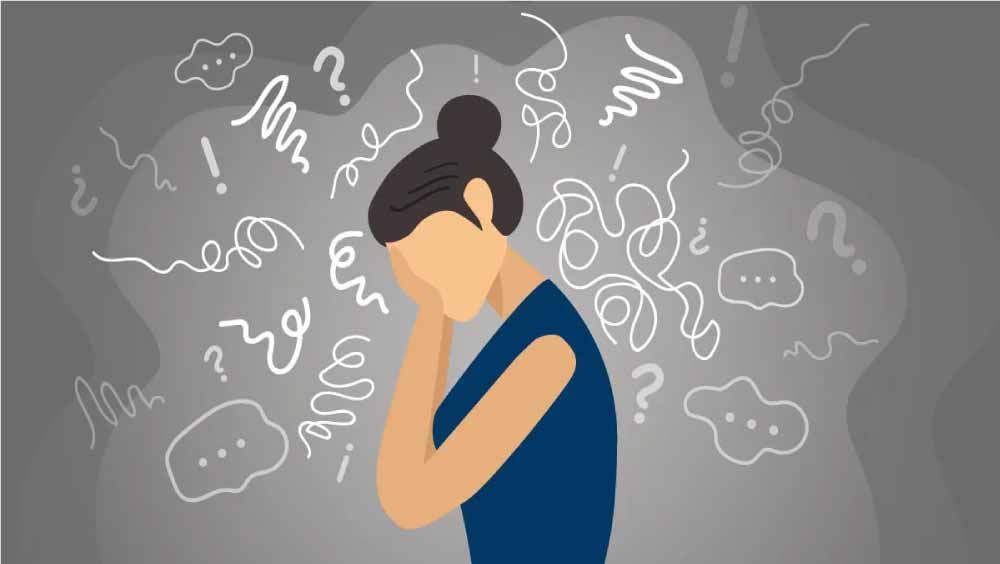Pregnancy is perhaps one of the most changing stages in a woman’s life, both her body and her brain must adapt to an amazing event and new emotions. Therefore, fatigue or sadness may be a common denominator for the woman who has just given birth, this, due to the hormonal changes that the new mother must go through. But when does everything get harder and postpartum depression arrives? Here I tell you a little more about this topic.
What is postpartum depression?
Postpartum depression is a mood disorder that affects a considerable number of mothers who must deal with various feelings such as sadness or emptiness they feel after their baby is born. It is believed that the high concentrations of estrogen and progesterone that accompany pregnancy drop considerably when you have a baby, thus playing an important role on a woman’s emotional state. It is estimated that up to 15% of women who have given birth have suffered from postpartum depression.
To determine that a mother is going through postpartum depression, you must meet some criteria that may vary in some cases, but, the main ones to take into account are changes in mood normal to a depressed one, full of a lot of sadness. Likewise, loss of interest in what you are going through, for your baby, lack of appetite, sleep disturbances, loss of energy and recurring thoughts of death, are considered warning signs of postpartum depression.
Postpartum depression or baby blues
Many times baby blues is often confused with postpartum depression, although both are mood disorders in the new mother, their risk is different. It should be differentiated from the baby blues because this state as well as postpartum depression generates in the woman irritability, frequent desire to cry, feelings of sadness, guilt and drastic changes in their mood, but, it is the time that lasts this period that tells us that it is not postpartum depression, usually they are usually one to two weeks after the birth of the baby what the baby blues lasts.
Unlike postpartum depression, the baby blues poses no increased risk to the health of mother and baby. It is a normal reaction of the mother’s body to so many changes after childbirth, 85% of women have presented it.
However, postpartum depression without specific treatment can be very dangerous. It is essential to know the diagnosis of the state of the new mother, if it only goes through the baby blues period or if on the contrary it suffers from postpartum depression and requires treatment.
Postpartum depression symptoms
The symptoms of postpartum depression can vary in each woman and some are even unknown because hormonal alterations change according to the patient’s medical history. That is why we can say that the causes are not known with certainty, but some factors that could indicate that the woman is predisposed to present it after her pregnancy.
- Whether the woman has a history of depression or another mood disorder.
- You receive treatment to control your mood or sleep.
- In his medical history he has relatives who have suffered from depression.
- You are under 20 years old.
- The pregnancy was unplanned.
- Consumption of alcohol, drugs.
- It has no support.
- You have recently experienced a stressful situation.
There are also a number of situations that occur as a result of childbirth that could trigger this state.
Physical changes during pregnancy and after this, the woman goes through many physical changes that can be difficult to understand and accept, this generates emotional stress for many women.
Social changes and in the relationship with the arrival of a baby at home the woman has less time for her leisure and for her relationship, now her baby is her priority and must ensure her care, leaving aside her physical and mental discomfort.
Insecurity many women doubt their role as mothers, constantly wonder if they are doing well, when this happens and the mother has no support, internal conflict and overload are generated.
Treatment
If you think you could be suffering from this state or know someone who is going through this, the important thing is to visit a specialist immediately, who will indicate steps to follow to overcome this disorder.
In the treatment for postpartum depression, drugs and psychotherapy are used, with therapy being the one that can provide the most benefits to women, this since the mother can vent without fear of being recriminated for what she feels for her baby, for her new life as a mother.
Another no less important point is family and environmental support, a woman who goes through this disorder needs a lot of support, also compression. The main tools to overcome postpartum depression are:
It is recommended that the mother with postpartum depression receives a lot of help for the care of her baby during this stage, since the changes or discomforts that could present make it difficult for her little one to care.
Talking even if it sounds impossible with the condition of the woman, dialogue with others is positive because it allows her to talk about what she feels, about her feelings.
Extremely important rest for anyone, but even more so for a woman with postpartum depression. Getting enough rest will help you stay physically well and will also help your mental health.
The time to heal personal time is often minimal with the arrival of the baby, the new mother does not have the space and moments necessary to assimilate the discomfort and heal her wounds properly. It is necessary to create moments of self-care for the mother.


